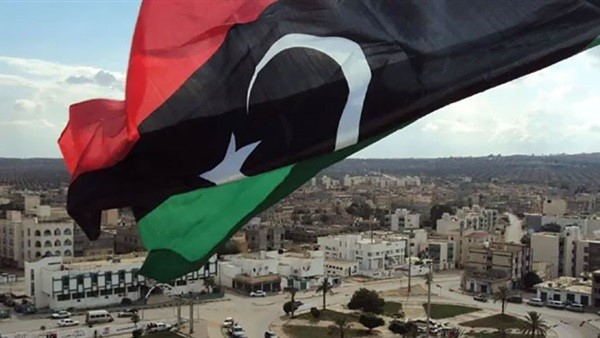Mahmud al-Batakoshi
Libya has already entered the dark tunnel, with the civil war dragging on in the Arab country.
This war is turning Libya into an arena for internal strife and a playground for various intelligence services that are exacerbating the crisis.
A number of militia leaders in western Libya have announced the formation of the so-called ‘Union of Libyan Revolutionaries’.
The same leaders rejected the Constitutional Amendment No. 13 which was approved by the House of Representatives and the State Council.
They said they would not allow the enforcement of this amendment, even if this would make it necessary for them to use force to prevent Libya from sliding into chaos.
The amendment is made of 34 articles that focus on the system of government, which, according to the first article, consists of a bicameral legislative authority and an executive authority headed by a president elected directly by the people. It also contains articles on women.
According to the amendment, the legislative authority is called the ‘Council of the Nation’. It consists of two chambers: the House of Representatives, based in Benghazi, and the Senate, based in Tripoli.
The amendment also defines the legislative competencies of the two chambers and the method and conditions of candidacy and elections for them.
However, the executive power is headed by a president elected directly by the people. The president also appoints or sacks the prime minister.
The amendment defines the competencies and functions of the executive authority and the method of its accountability.
Faltering security landscape
International affairs specialist, Mahmud al-Effendi, said the announcement by the militias of western Libya about the formation of the Union of Libyan Revolutionaries comes in conjunction with the international community’s intensive attempts to hold the presidential and parliamentary elections in the country this year.
“This reflects the fear of the militias of western Libya to complete the roadmap, which results in the unification of the military institution, which is not acceptable to Sadiq al-Ghariani, the isolated mufti of Libya,” he told The Reference in an interview.
Al-Effendi described al-Ghariani as the ‘godfather’ of a large number of militias in western Libya.
The greatest evidence of this, he said, is rejection by the militia leaders of Constitutional Declaration No. 13 which was approved in February 2023.
“The declaration regulates the presidential and parliamentary elections scheduled for this year,” he said.
New roadmap
Al-Effendi did not rule out the possibility of launching a new roadmap for Libya in the coming period.
The new roadmap, he said, would be based on the initiative led by United Nations Envoy to Libya, Abdoulaye Bathily.
“This is especially true after the latest Egyptian-Turkish rapprochement on the Libyan file,” al-Effendi said.
“This rapprochement was confirmed by Turkish Foreign Minister Mevlüt Çavuşoğlu who hinted at a new roadmap to be agreed with Egypt and the international community to hold the presidential and parliamentary elections in Libya.” He added.








































admin in: How the Muslim Brotherhood betrayed Saudi Arabia?
Great article with insight ...
https://www.viagrapascherfr.com/achat-sildenafil-pfizer-tarif/ in: Cross-region cooperation between anti-terrorism agencies needed
Hello there, just became aware of your blog through Google, and found ...